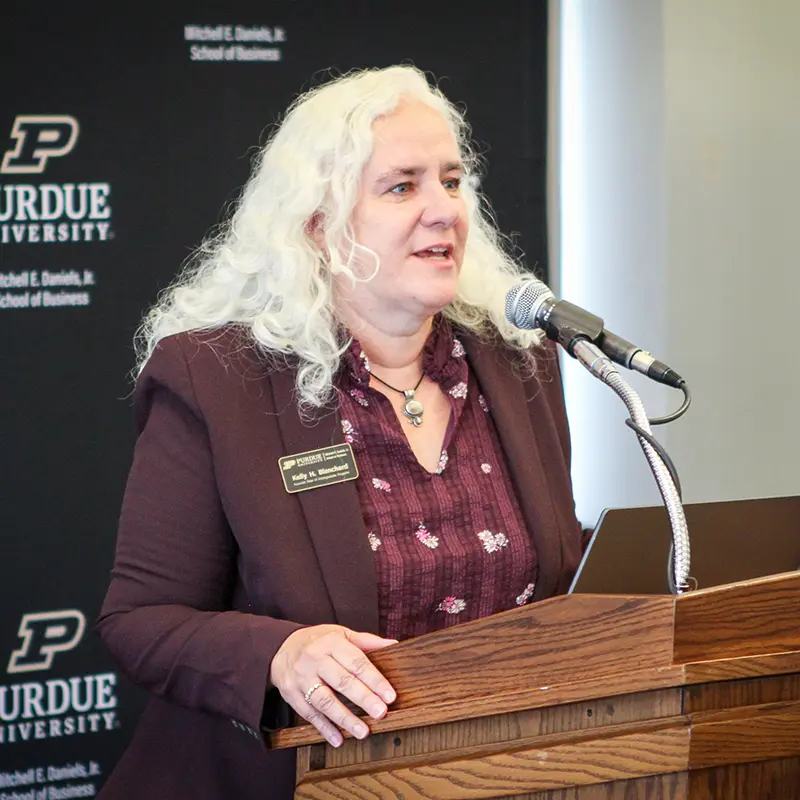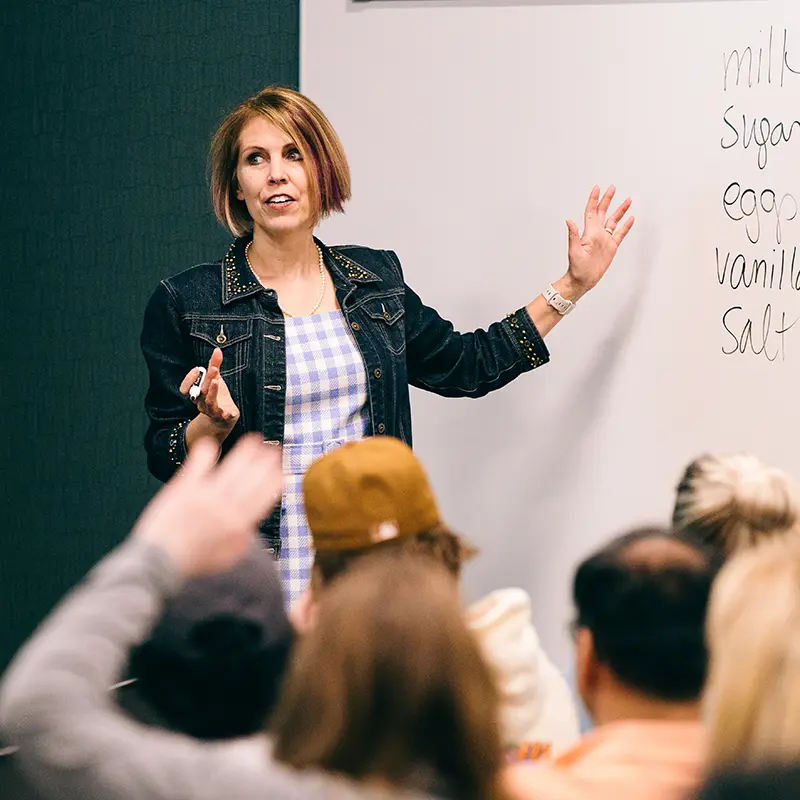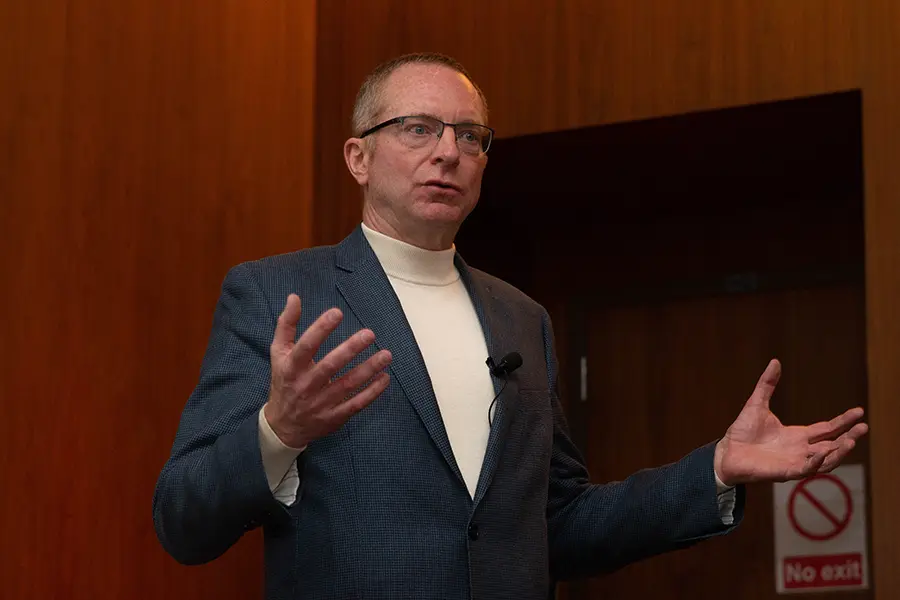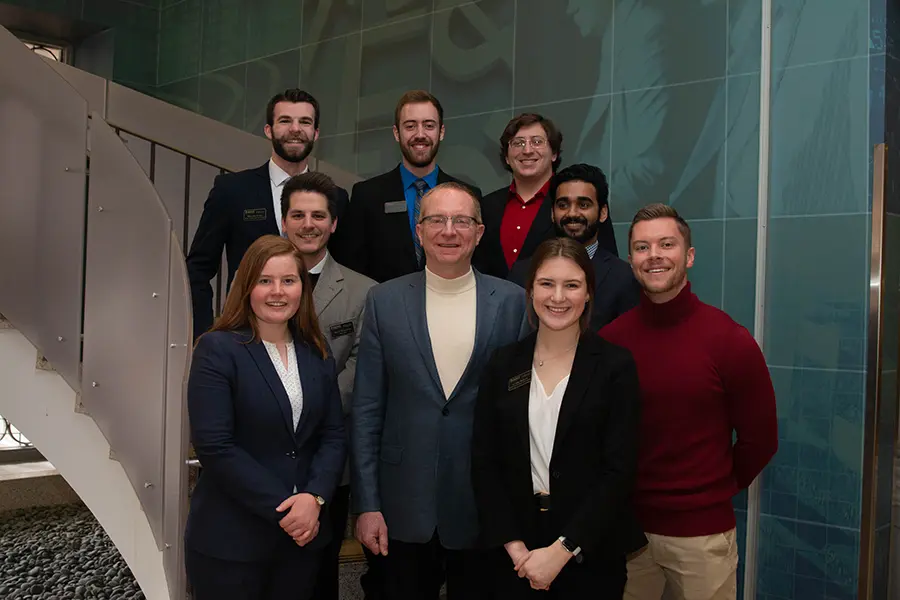
Ethics in business has been a subject of discussion going back to Aristotle, whose approach holds that good corporate and social policy encourages and nourishes personal virtue and integrity.
It’s also at the center of a longitudinal research study being conducted by the Daniels School of Business that launched in 2018 with support from the Blake Family Ethics Fund. The study is tracking students from their first year through graduation as they work across core courses that incorporate ethics content.

The researchers began by looking at what could be done to incorporate the teaching of ethics into the Daniels School curriculum.
“We start from the point that business is important, that business generates value for society,” says Kelly Blanchard, associate dean for student experience and undergraduate programs and clinical associate professor of economics. “There are actions that business leaders can take to increase the amount of value that business generates for society. And there are also actions they can take that would decrease the amount of value that society gets from the business. It’s our responsibility to make sure students understand those distinctions.”
To launch the study, more than 2,500 students from select courses across campus, including 954 business school undergraduates, were tested in a series of interventions (ethics lectures, reflective essays and personal ethics inventories) to determine their impact on four different stages of “ethical maturity” – awareness, application, analysis and action.
“What we’re really measuring is how students are changing and how they think about ethics,” says Cara Putman, a clinical assistant professor of law, communication and ethics who is co-piloting the ongoing study along with Blanchard. “We’re helping them define their own ethical standards and perspectives so that when they do face dilemmas, they have some idea of what solutions they can use to reach an ethical outcome.”
Blanchard and Putman have also worked to expand the number of professors involved in the study.
“We started a process where we sat down with faculty and talked through what they were doing in their specific classes already and what they might want to experiment with,” Putman says. “For example, they may have used a case study before, but now we’re doing a very deliberate pre- and post-survey with the new longitudinal study. And so we’re capturing that data to see what kind of changes we are seeing when students learn about ethics.”
Beginning the second module of the spring semester, Putman will also be piloting a new one-credit undergraduate class on ethics that will be required for all undergraduate students starting in the fall. Among other learning outcomes, it will help students understand the “language of ethics.”
“We use words like consequentialism and deontology, but no one knows what they mean,” Putman says. “How do you make that practical? How do you take it out of the ivory tower and turn it into an automatic part of the process anytime someone's making a business or personal decision? What are the different frameworks they can use when they're confronted with a decision that's going to have ethical implications?
“Our goal is to help bring it back down to a more common language that a business student is going to be able to grab hold of and think about much more quickly and in the moment when they have to make decisions.”
“When you hear that business people were arrested for unethical behavior, what does that mean?” adds Blanchard. “Does that mean that they were falsifying reports of some kind? Were they acting in a way that was against the standards of their own personal business? What were they doing that was actually being considered unethical? You could get different conclusions about what's ethical or not, but I think what’s been really helpful is introducing students to an ethics discussion that will carry over from class to class.”

The course will also utilize the Kohlberg Model of Moral Development, which measures ethical growth across six stages. “The core of the model shows that over time, there's potential to help people grow from a very individualized type of focus where you are making decisions based on trying to avoid punishment to more of a community focus where they can make decisions that are going to have a greater impact,” Putman says.
Going forward, the Daniels School hopes to hire a full-time director for its ethics program, which will operate through the newly formed Blake Center for Business Ethics. There are also plans for undergraduate scholarships, as well as an annual conference on ethics that ties in to the Daniels School’s “Cornerstone of Business” initiative.
Another goal is to ensure that there are classes in every major that address ethics, Blanchard says. “We want students to take a step back from the broader objective and ensure that when there is an ethical decision they're being asked to make, they actually weigh those considerations in a way that actively examines the different components of what makes an ethical decision or an unethical decision,” she says.
Putman shares that goal. “We want to make sure our students are prepared to meet the challenges of the future,” she says. “We want them to be the most ethical leaders for business in the future. We don't want to see our students on the front page because they are creating scandals. We want to see them in the headlines because they are leading transformative companies and solving big problems. And that's what I believe we're doing here at the Daniels School of Business.”
In his Introduction to Management (MGMT 100) class, Dave Randich, a lecturer in law, communication, and ethics, brings decades of industry experience to the discussion.
Before he joined the faculty at Purdue’s Mitchell E. Daniels, Jr. School of Business in 2021, Randich led a successful corporate career as president of MasterBrand Cabinets, a subsidiary of Fortune Brands Home and Security and the largest cabinet manufacturer in North America.
Randich, who earned a bachelor’s degree in industrial management from Purdue in 1983, had already developed a notable career as an international business leader, living and working in Europe and Asia for 14 years and leading four global businesses in the consumer durables/building products sectors. He received the school’s Business Leadership Award in 2023.
“I use real-world examples of ethical dilemmas in business and ask students how they would respond,” he says. “First, we do an exercise around why people would be tempted to make an unethical decision. Is it the profit motive? Then we look at it from the perspective of stakeholders, employees, suppliers, shareholders and communities. What’s our responsibility as leaders to these people? The third level is personal integrity. What do your actions or inactions say about you as an individual?”
Importantly, Randich is also participating in the longitudinal study by using the survey instruments developed by Cara Putman and Kelly Blanchard. He also makes it a point to use common language in discussing ethics, ensuring that the more than 400 freshmen in MGMT 100 will bring the lessons into subsequent classes.
“Ethics is a part of every important business discussion,” he says. “We’re producing graduates who will go on to lead global companies, and we need to ensure they are behaving ethically and in the best interest of our nation and society.”

